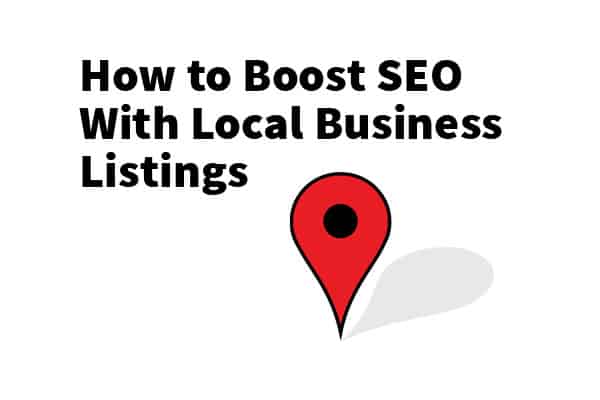
Most businesses are well aware of the importance of local business listings for SEO, but many don’t know where to turn when it comes to improving their rank in Google’s local search results.
Over 40% of Google searches have local intent, and according to a recent report by Search Engine Land, an estimated 12 billion of the 30 billion annual mobile searches are local.. This means businesses who aren’t showing up for local queries are missing out on a huge opportunity to broaden their reach and capture a new customer base.
Fortunately, there are some ways that every business can leverage local listings to influence key ranking factors that will lead to increased SEO results.
Establishing Local Business Listings
Establishing listings with the likes of Google, Yelp, Bing and Yahoo is the first step for businesses looking to grow their online footprint. HubSpot has published a list of local business directories that many searchers are avidly using to find businesses in their area.
While there are thousands of online directories available, quality trumps quantity, and this list is inclusive of the most trustworthy directories available.
When setting up business listings, it’s highly important to ensure that all pertinent business information is consistent and accurate. Mismatching information sends signals to search engines that something is awry, which can lead to penalization.
We recommend using a spreadsheet to track which listings you’ve established. This way if your business information ever changes, you have a record of where you need to make updates.
Optimizing Local Listings
According to a recent MOZ study on local search ranking factors, businesses should be paying close attention to things like how their listings are categorized, proper title use, customer reviews and social signals that are being received on behalf of their business listings.
Also, it’s important to complete listings with 100% thoroughness, as this can improve your ability to rank in the search engines and provides you with ample opportunity to display unique business information that searchers could be looking for. Images, videos, descriptions of products and services and hours of operation are some good examples.
To maximize SEO value, make use of keywords in your listing, but be mindful of current guidelines and avoid keyword stuffing or over-optimization. These tactics can appear spammy and lead to penalization.
Helpful Tools to Update Local Listings
Having trouble finding the time to create dozens of local business listings? There are some great tools on the market that can help you.
Yext
Yext is a powerful tool that allows marketers and business owners to manage local content, including business listings, from a single platform. Nearly 200 business and mobile listings can be easily added, modified or updated from the Yext platform in a few easy steps.
Even mobile apps and maps are updated using the Yext technology which means you have the ability to reach some of those 12 billion users who are performing mobile searches each year.
Get Found
GoDaddy’s Get Found offers a number of plans starting at under $5 per month which allow you to easily publish your business listings across mobile applications, search engines, social media and other sites such as the Yellowpages, Yelp, Facebook and CitySearch.
It also includes a text editor and easy drag and drop features that allow you to add or update complete sections at a time.
Let`s Get
In Touch
Contact us today for a free consultation
and cost estimate for
your project.
We work with companies in all
industries, big or small.
Give Us a Call: 786-529-6039
Services
©2024 FUZE DIGITAL INC. Ignite Your Brand™ | privacy





